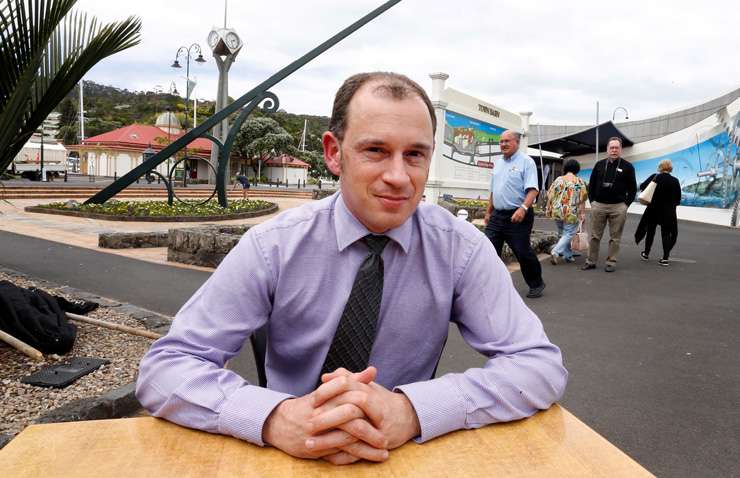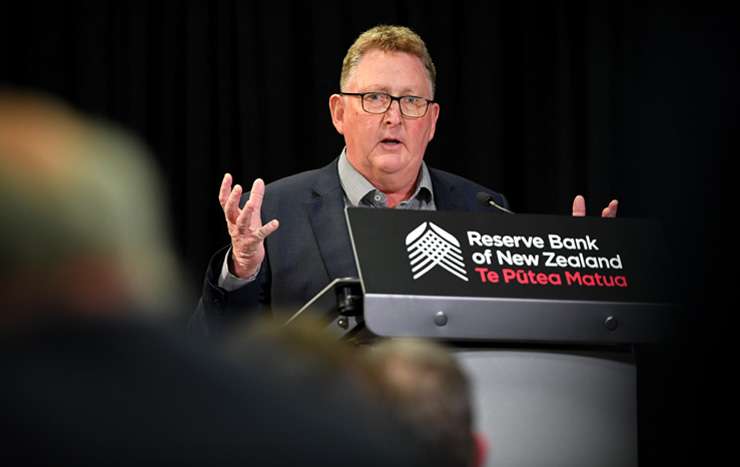A tumultuous summer of weather has given way to autumn but the pre-winter season is not expected to change the downbeat conditions of the housing market, according to experts spoken to by OneRoof.
Whether the uncertainty being caused by banking vulnerabilities in the United States has much of an impact on the market here also remains to be seen.
Gareth Kiernan, chief forecaster and director for Infometrics, says interest rates are still the dominant factor in the domestic housing market, which has been falling since the post-Covid boom.
The Reserve Bank has been hiking OCR rates to dampen inflation but its latest review was slightly less hawkish than it has been in recent times and most forecasters are paring back their expectations of future rises, says Kiernan.
Start your property search
“There’s still more to come but not quite to the same extent.”
If the global economy comes under pressure from the overseas’ banking issues there would be an indirect impact on interest rates here, with a more direct impact on the availability of finance, depending on how well-oiled the global financial system, and therefore the global economy, is, he says.
But Kiernan does not see a repeat of the Global Financial Crisis of 2008/2009 where credit conditions and finance tightened to the point the economy was prevented from functioning as well as it could otherwise have.
And if the Reserve Bank does not feel it has to weaken economic activity as much as it had anticipated that could be good news for mortgage-holders.
Read more:
- 100 years of selling Auckland: The story behind city’s biggest real estate agency
- The 16 suburbs where house prices jumped more than $100K
- Bidding wars for defective Wellington homes brings in more than $1m
“If you go back three months, six months, the expectations were for those one-year rates possibly pushing up somewhere between 7 and 7.5% and that kind of looks unlikely now,” says Kiernan.
The downside is the possibility of a more uncertain labour market.
“If there's negative implications in terms of economic growth and the labour market and unemployment and those type of things then there's obviously going to be a pool of people who are negatively affected by those so the distribution of the impact isn't necessarily even.
“It's not unequivocally good news for everyone, that's for sure.”
Kiernan says the unemployment rate sits at 3.4% but that could push above 4% and even 5% middle to late next year.
A softening labour market would create a measure of insecurity around job and income security not seen in New Zealand for several years.
“That will probably make people pretty cautious about purchasing property or taking on more debt and that type of thing.”
Nick Tuffley, chief economist for the ASB, expects the highs in interest rates to continue through autumn, saying that and the degree of new-builds coming on to the housing market will keep downward pressure on prices so activity is likely to remain subdued.
“I don't think that backdrop will be changing in a hurry so I still think we will see further price declines coming over the next few months.”
Tuffley thinks increases to the OCR will stop going up and says the peak in interest rates is near, or already here.
He says fallout from the United States’ banking sector does not look likely to have any material or long-term impacts in New Zealand at this stage, however, there is potential for some of the smaller, regional US banks to face challenges if they have significant holdings of government bonds.

Infometrics Gareth Kiernan chief forecaster: “There’s still more [rate rises] to come but not quite to the same extent.” Photo / John Stone
Government bond yields have been pushed down, particularly in America but also globally including in New Zealand, a little bit.
“When you have that focus on banks and the riskiness of them, credit-worthiness of them, what you can have is the credit premium that you pay can potentially increase at a time like this.”
Tuffley, too, says as a result the Reserve Bank may be a bit more cautious about pushing interest rates up as much as it might have.
“The less interest rates go up obviously the better news that is for borrowers because their debt servicing costs are going to be cheaper.”
Tuffley says with the Reserve Bank getting close to the finish line with rate hikes and also a sharp uptick in net migration the demand for housing will likely increase again.
“That's one thing which could actually bring the decline in house prices to a halt potentially a bit quicker than what we're currently thinking.”
He says the ASB’s view is interest rates will start to come down in the first half of next year.
Kelvin Davidson, chief economist for CoreLogic, does not foresee any quick improvement for the housing market but he does see light at the end of the tunnel, possibly at the end of this year.
The market is likely to remain challenging through winter because even if mortgage rates creep down, they are still going to be high and there are still credit rules in place, such as the LVR restrictions and the CCCFA checks, he says.

Reserve Bank governor Adrian Orr is expected to raise the official cash rate in April. Photo / Getty Images
“So new borrowers, it's still going to be expensive for them and people rolling off existing fixed loans are still going to be looking at a big increase in payments.”
Davidson thinks people currently have a pretty pessimistic mindset and an acceptance the market is weak.
While buyers are thinking it’s their chance to grab a bargain not many vendors have to sell, he says, so they can sit on the market or withdraw their property if they don’t get the price they want.
“I suppose there is a little bit of a standoff.”
However, Davidson thinks spring could bring “less pessimism” because by then interest rates may be moving down, and he also agrees net migration has picked up and will play its part.
“By then the downturn will have been in progress two years and I just think there's going to be a time when people say ‘that's pretty long and prices are down enough that I feel a bit more confident now.’”
Investors may also sneak back into the market ahead of the election in case National is voted in and reverses the tax deductibility rule imposed by Labour, which has seen many investors exit the landscape.
In the meantime, though, Davidson says there are probably more people struggling to pay the mortgage than is being seen in the low mortgagee sales data.
That’s because people often pre-empt a mortgagee process by selling up, but that sort of stress-induced sale is hard to measure.
“It’s just that on our records it just shows up as somebody selling a house.”
- Click here to find properties for sale













































































